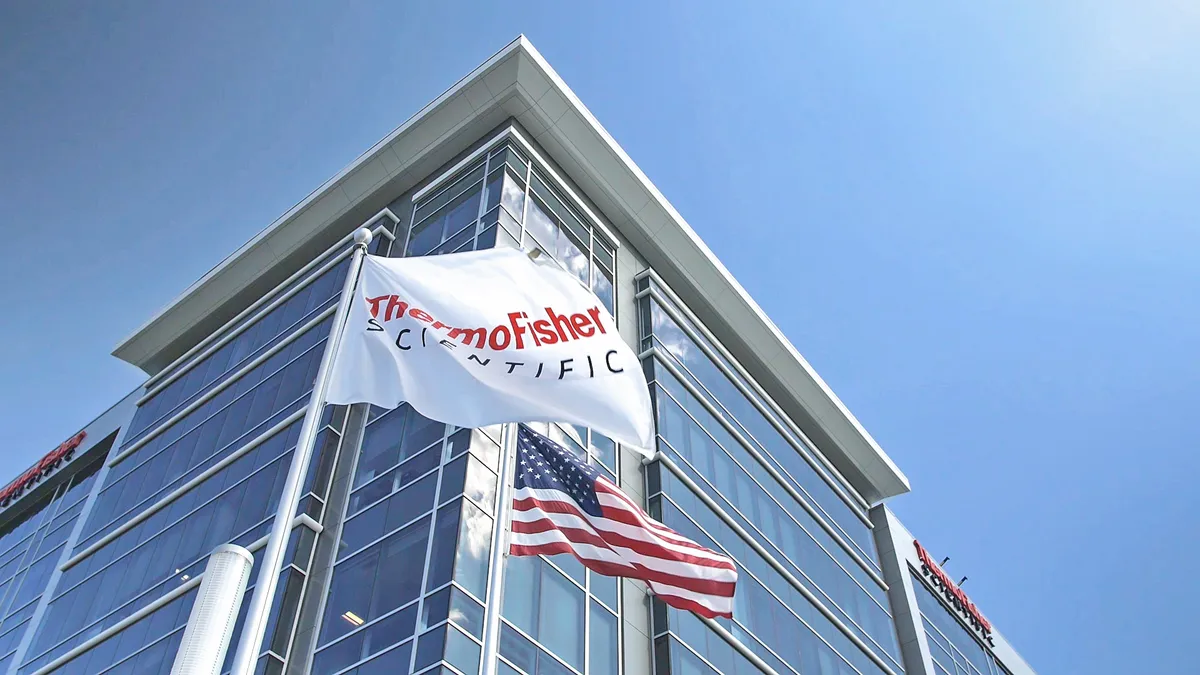Dive Brief:
- Molecular test maker Qiagen on Friday said it has received several non-binding indications of interest to acquire all outstanding shares in the company and is in talks to explore strategic alternatives.
- The company’s shares jumped 13% after Bloomberg reported that Thermo Fisher had approached the Netherlands-based company about a potential acquisition, citing people familiar with the matter.
- Qiagen said its supervisory and management boards were starting discussions with interested parties to explore opportunities for greater value creation to benefit stakeholders.
Dive Insight:
News that Qiagen may sell itself comes two weeks after the company reported weaker-than-expected third-quarter results and just over a month after it announced a restructuring plan and the departure of CEO Peter Schatz, a 27-year veteran of the company.
Schatz was replaced on an interim basis by Thierry Bernard, head of the molecular diagnostic business.
That exit caught the market off guard, sending the company’s shares down 20% on the morning of the announcement.
Thermo Fisher has already delved into acquisition mode this year. Earlier this year, Thermo Fisher acquired an active pharmaceutical ingredient manufacturing facility in Cork, Ireland, from GlaxoSmithKline, as well as mass spectrometry software provider HighChem.
Qiagen recorded a $277 million charge in the third quarter for restructuring its operations as it shifts its strategy away from next-generation sequencing. It said it would suspend NGS-related development activities and instead focus on a partnership with Illumina to develop in vitro diagnostic kits for use with its MiSeq Dx and NextSeq 550DX systems.
Qiagen and Illumina plan to commercialize oncology IVD kits for patient management and are looking at cardiology, hereditary diseases, infectious diseases, inflammatory and autoimmune diseases as additional areas for investment.
The company blamed slowing growth in the third quarter on a sales shortfall in China. Sales there plunged 24% amid a drop in orders from distributors and the end of a joint venture for next-generation sequencing. The disappointing China results dragged down overall molecular diagnostics sales, which fell 2%.
As part of the restructuring, the company also will be expanding business service centers in Wroclaw, Poland, and Manila, Philippines, as it creates a regional manufacturing structure.











